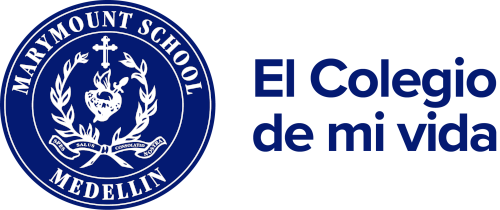
Overview
Passage through Elementary School represents a milestone in the social-emotional and cognitive development of students. They acquire greater autonomy, through strengthening self- conscience , as well as conscience of others and the environment within the framework of respect, tolerance, and empathy. They develop self-management skills, strategies for conflict resolution, collaborative work and learn to make decisions.
Learning process
In Elementary School, reading, writing and logical mathematical processes are consolidated, communication and creative skills, motivation, enjoyment, and curiosity for learning are strengthened. Through art, dance, music and sports, the recognition of talents and interests is facilitated, and motor skills, self-concept, creativity, and fair play are strengthened. Critical thinking and self-directed learning skills begin to be developed, placing students at the center of learning, differentiating, and using different didactic tools. Preparation and performance in standardized Cambridge tests (Starters and Movers) and the Avancemos Tests promote effort, rigor, and skills necessary to solve problem situations with critical thinking and in context.
Training projects
This section offers a series of training projects which are articulated in a curriculum for the development of socio-emotional skills, which promote the comprehensive training and strengthening of life skills. From grades 1 to 4, we continue working on the development of values and self-esteem, through the VYDA project, which is coordinated by the Department of Psychology and carried out by parents. The School Coexistence project focuses on fostering relationship skills through different activities and events that promote healthy coexistence, tolerance, and respect. The Time of God (El Tiempo de Dios) is a project that favors social responsibility and an attitude of service, based on the knowledge of oneself and others.
In Elementary School different liturgical celebrations and activities are carried out that promote spiritual development and inner life. In Third Grade, First Communion takes place, a very significant spiritual and religious moment for our students and their families, where emphasis is placed on skills such as self-awareness and social awareness.
Other training projects (SER – Sexuality / Health, Emotions and Interpersonal Relations, Consumption Prevention, Life Project and Being a Citizen) focus on the development of different abilities for life.
Spare Time Activities
The adequate use of spare time is one of the pillars of 21st century learning in which students explore their interests, enhance their talents, and develop skills according to their strengths. These activities are led by the Sports Club, the Cultural Committee, and the Innovation Department, which allow girls to have a different range of programs to choose from including arts, sports, and academia.
Global citizenship
In Elementary, trips to different places in the department and the country begin, with the aim of fostering the student´s autonomy, their sense of belonging and knowledge of their local and national environment. They are carried out taking into account their psycho-social development and the curriculum of each grade. In the same way, academic and training projects are developed with the schools belonging to the RSHM (Religious of the Sacred Heart of Mary) global network of schools.
Work team
It is made up of an interdisciplinary team of teachers, area teachers, the Learning Direction, the Section Direction, the Psychology Department and the Learning Center, who accompany all the educational and pedagogical processes. All grades have 3 groups and each one is guided by a group director.
Structure and schedules
Elementary School is divided into Lower Elementary (1st and 2nd grade). Upper Elementary (3rd and 4th grade).
School hours are from 7:20 a.m. to 3:15 p.m. and the extra-curricular activities are between 3:15 p.m. at 4:15 p.m.
Said schedule includes spaces for group management, learning skills, morning snack, lunch, and academic areas.
